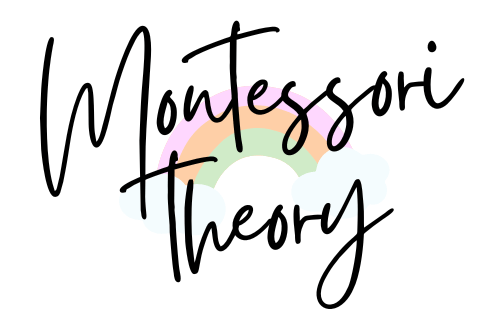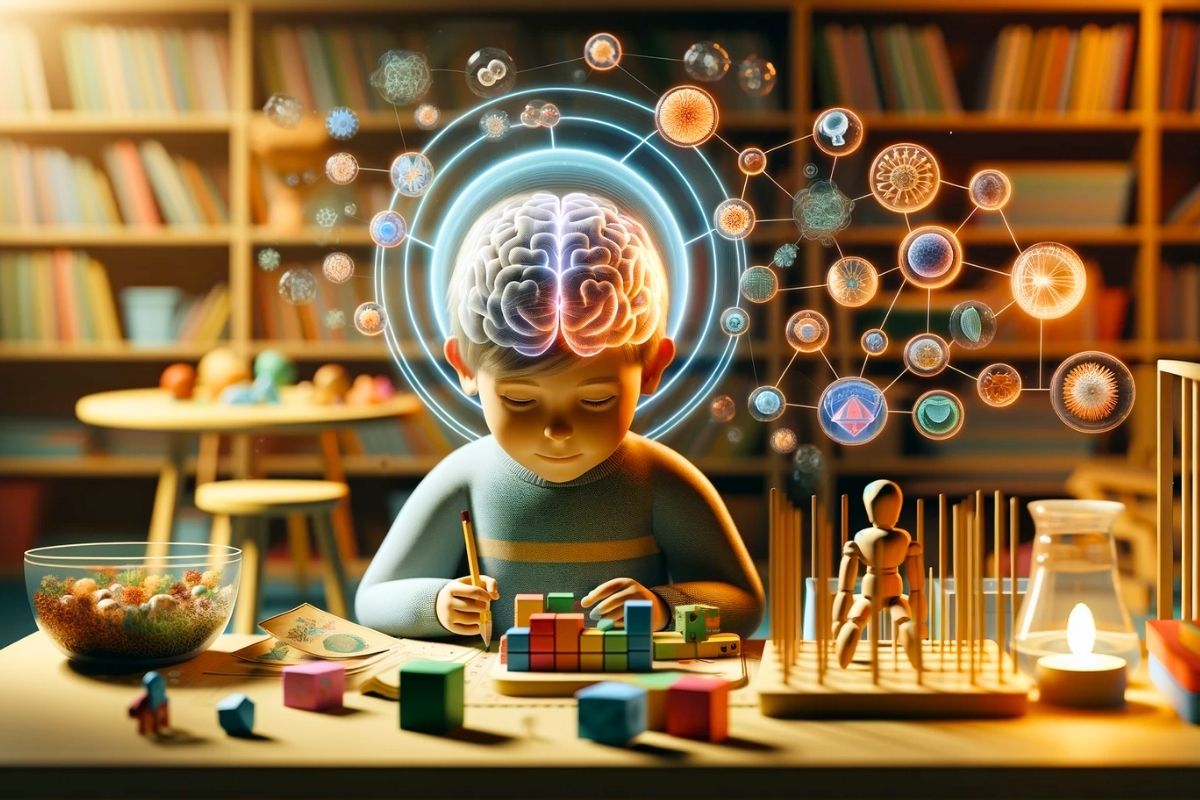Dr. Maria Montessori first introduced “The Absorbent Mind,” or brain that absorbs, into literature on child development with her book by that name titled The Absorbent Mind. This phrase refers to children’s ability to absorb information effortlessly from their environment without exerting much mental strain in doing so. If you join us we’ll discover its hidden secrets as we investigate its significant impacts on early years development for both the individual and society alike!
Key Takeaways
- The absorbent mind includes the unconscious phase for early skill development and the conscious phase for active learning and growth.
- Rich environments are crucial for fostering cognitive, social, and emotional development through exploration and activities.
- Physical well-being, including nutrition and sleep, is essential for optimal brain development and functioning.
- Nurturing the absorbent mind involves providing sensory experiences and promoting exploration and independence.
- Supporting this developmental phase prepares children for lifelong learning and future adaptability.
Understanding the Absorbent Mind
The mind’s expansiveness is divided into two major times or stages that are the conscious and unconscious stages. In these two phases, kids learn a range of capabilities and talents when they interact with their environment. This is why it’s vital for educators, parents and others to be aware of the components and processes of the inquisitive mind in order to assist the development of young children and growth.
| Aspects | Unconscious Stage | Conscious Stage |
|---|---|---|
| Age Range | Birth to ~3 years | ~3 years and beyond |
| Learning Mode | Passive Absorption | Active Engagement |
| Memory | No conscious memory | Conscious memory formation |
| Development Focus | Construction and creation | Utilization and elaboration of absorbed information |
| Example | Unconscious absorption of environment | Active movement and language use |
Unconscious Phase (0-3 years)
From birth to approximately three years old, children remain completely unaware of their learning process and simply absorb ideas, concepts, and language without making conscious efforts to comprehend or integrate what is learned. At this time in development and brain maturation processes are rapidly increasing to create complex neural connections which will facilitate later years’ learning processes. Some key characteristics that characterize this stage include:
- Sensory-motor exploration: When exploring their world, children rely heavily on sensory experiences and motor abilities for discovering it. By engaging in tactile experiences or moving their bodies around they gain important lessons on cause-and-effect relationships, spatial awareness, as well as other core principles.
- Language acquisition: Infants and toddlers quickly pick up words, phrases and syntax without conscious awareness allowing them to effectively express themselves while communicating effectively with one another. This phase provides invaluable opportunities for language absorption.
- Imitation: Young children tend to learn by mimicking others and mimicking their actions, mimicry enabling them to gain social skills, emotional control skills and problem-solving capabilities. Through imitation alone they develop these attributes – as well as more specific life skills like problem-solving ability or emotional regulation skills!
Conscious Phase (3-6 years)
The conscious stage of learning typically begins between ages three and six when children become aware of their learning process and start actively seeking new experiences that interest them. They seek new adventures purposefully while actively participating in activities they find engaging. At this point, children can refine skills acquired during unconscious period while assimilating new information as they grow. Key features of conscious phase include:
- Hands-on learning: Children aged 3-6 enjoy engaging in practical life activities that enable them to develop motor coordination, concentration and an autonomous sense. Playing puzzles, taking part in daily chores or handling various materials help solidify newly acquired concepts.
- Cognitive development: At this stage, children’s thinking becomes more structured and analytical, shifting away from sensory exploration toward abstract thought that allows them to better comprehend causes and effects as well as classify objects and solve problems.
- Social-emotional growth: When children reach the conscious phase, they begin developing closer ties to peers while honing interpersonal and communication skills. At the same time, their awareness of emotions increases to allow empathy as well as self-regulation skills to flourish.
Analyzing Physical Aspects of the Absorbent Mind
Beyond the development of social and cognitive, the absorbent mind is a physical entity that affect a child’s overall wellbeing. Knowing these aspects is crucial to ensure adequate guidance and support throughout the early years. The most important aspects to take into consideration include:
-
Nutrition
A healthy diet is essential to ensure optimal brain development and children with balanced diets typically have better concentration as well as memory and cognitive function. A diet rich in nutrients in the period of brain-absorbing can help build a solid base for learning and development.
-
Exercise
Regular physical exercise improves not only physical health but also improves cognitive performance. Exercise improves the flow of blood towards the brain triggering the creation of neural connections, and improving memory and focus. Active play can also help with fine and gross motor development in children.
-
Rest and Sleep
Sleep and rest are vital to the optimal functioning of the absorbent mind. During sleep, the brain organizes and consolidates information it has absorbed during the daytime, aiding in recall and memory. Setting up a consistent routine early helps children make use of their natural absorbent mind capabilities.
The Dance of the Absorbent Mind and Sensitive Periods in Child Development
There is a possibility that you are wondering whether there is a connection between sensitive periods and the absorbent mind during the development of a child, especially in Montessori education. The two psychological concepts are closely linked, shaping the child’s journey of learning. The absorbent mind is a natural, sponge-like capacity to absorb knowledge from the world around it, present from birth to about six years of age. In this context, sensitive periods emerge as distinct intervals during which the child is exceptionally receptive to acquiring particular capabilities or understandings, such as sensory perception or language.
These periods are direct manifestations of the brain’s absorbent function and reveal the times when learning and development are most effective and natural. Together, these theories underscore the importance of providing a nurturing and stimulating environment during the early years of childhood, one that aligns with a child’s inherent capacity to absorb and their periods of heightened learning receptivity.
Supporting the Absorbent Mind in Daily Life
Parents, educators, and other caregivers play an essential role in supporting the development of the absorbent mind in children. By instilling healthy daily practices in learning environments that offer enriching opportunities, and providing appropriate support and encouragement, children can make the most out of this special phase of their development. Some useful strategies for nurturing an absorbent mind include:
- Provide a rich sensory environment: Create a setting rich in experiences where children’s senses are stimulated through touching textures, listening to different noises, and seeing vibrant hues.
- Encourage exploration: Give children space and freedom for self-directed play and discovery, allowing them to explore and understand their world at their own pace.
- Model and provide language input: Engage in conversations with your child, read aloud stories, and introduce a wide array of vocabulary to encourage language development.
- Promote practical life activities: Engage children in daily tasks such as cooking, cleaning, and gardening to enable them to gain essential life skills while developing independence and building self-confidence.
Parents and educators can assist young children in taking full advantage of these early years by understanding and applying concepts, elements, and analyses related to absorbent mind development—along with strategies that support each phase—while building the foundation for long-term learning, success, and overall well-being.



